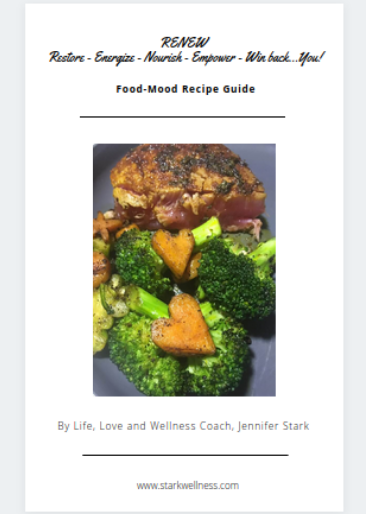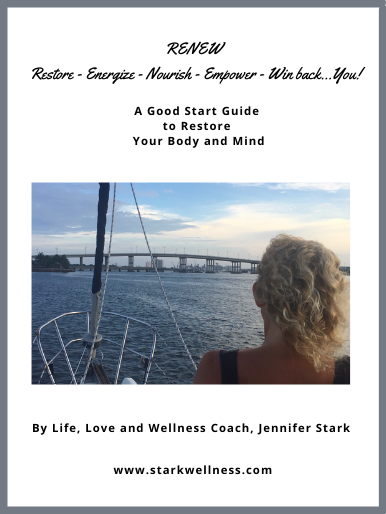Are you prone to stress?
You might be vulnerable to stress if you:
- experience a negative life event such as divorce, death or other loss.
- constantly face a demanding job, boss or family member.
- have low self-esteem.
- frequently blame yourself when something goes wrong.
- lack social support.
Do you find yourself:
- acting overly emotional?
- snapping at others?
- suffering from chronic headaches or stommache aches?
- feeling drained?
Those are all signs that you might be susceptible to stress and your mind and body need support!
Stress can be quite destructive to your brain, killing cells and wearing down your memory and ability to think clearly and make decisions. You know this first-hand….don’t you?
But you can build resilience. You can use coping and prevention tactics to cushion yourself against stress and lower your sensitivity.
Here are 5 stress-busting strategies to get you started.

1 – Strengthen Mental Defense with Meditation
Want to react less to stressors and improve your memory and alertness?
Meditation can help cultivate calm and reduce reactivity. Just a few minutes can help you beat mental fatigue and boost your brain power.
Try this simple exercise:
Stop for a one or two minute break during your hectic day, sit up tall, and take a few deep breaths. Choose to focus on:
- your breaths and physical sensations;
- a steady background sound;
- a window view;
- scents of nature, a candle or nice hand lotion;
- or a helpful mantra or quote.
Be fully present. When your mind wanders, don’t fret about the disruption. Gently return your attention to your chosen focus.
Try this several times a day, especially before facing something stressful. And when your mind starts catastrophizing about the future or sulking in the past, you’ve got a strategy to help yourself get back to you.
For more meditation tips and strategies, check out my blog post “Laid Back Mindfulness and Meditation.”

2 – Support Your Mind and Body with Food
We know stress can affect how we eat. Conversely, our eating habits can make us susceptible to stress. Hello H-ANGRY (Hungry + Angry).
Fluctuating blood-sugar levels majorly affect my mood. I am aware of that and can implement mental defense techniques….OR I can maintain a regular eating schedule and make food choices that support normal blood glucose flow in my body.
If you are vulnerable to anxiety, stress or swinging moods you might try including or increasing the following in your daily diet:
- Vitamin and mineral rich, free-radical fighting, hormone supporting vegetables, especially dark leafy greens, broccoli, cauliflower, brussel sprouts and sweet potatoes
- High protein foods including eggs, beans, lentils, fish, chicken and lean meat
- Omega-3 fatty acids found in flax seeds, walnuts, fatty fish and fish oil
- Gut-healthy fiber found abundantly in fruits, vegetables, peas, beans, nuts, and oatmeal
- Magnesium loaded leafy greens, figs, avocados, Brazil nuts, and my favorite raw cacao or very dark chocolate
- Fruits high in Vitamin C such as papaya, pineapple, strawberries, kiwi, and who can eat a mango without smiling and feeling good?
- Foods high in the Vitamin B group including eggs, brown rice, beans, lentils, chickpeas, oranges, fish, chicken and lean meat
Some foods to avoid if you are prone to stress:
- Highly processed, refined, sugary and/or salty foods and drinks that will only spike your blood sugar levels, elevate your tension and leave you more stressed and less energized
- Simple carbohydrates such as chips, bread, pasta and pastries that will have similar effects while also making you crave more
- Coffee can be overly stimulating for some people; I like to stick with 1-2 cups and follow with food, or add an equal amount of coconut milk or 1 Tablespoon of coconut oil, 1-2 Tablespoons collagen powder, a dash of Himilayan sea salt or Real Salt, about 1/2 teaspoon cinnamon, and a dash of cayenne to make my cup of joe a mini-meal
- Juices stripped of fiber and concentrated with sugar
To help you get started with healthy meal planning, grab my Food-Mood Recipe Guide in Part 3 of my email course RENEW:

3 – Build Long-Term Stress Resilience with Moderate Exercise or Movement
Just five minutes a day of moderate activity can help reduce stress and anxiety while increasing happiness and energy. The same could also be accomplished with one good 20 minute spurt once a week.
In those few minutes you can soothe stress, fortify your brain cells, and help yourself become less sensitive to stress.
I partly want to recommend longer spurts–or to sprinkle in these daily or weekly spurts along with several more minutes of light exercise or movement–but sometimes the minimum is all you can start with or fit in, and that’s great!
Also, this isn’t about losing weight or improving cardiac health, although you might.
What defines ‘moderate’ is up to you. YOU get to choose an activity and participate at a level that is a little faster than a romantic stroll through the park, a little swifter than swaying to music, slightly more strenuous than laundry duties.
For example: while enjoying that romantic stroll through the park, tease your partner with a little bump of the hip and say, “See if you can keep up with me!” Then take off; maybe swerve around a bush or two and get all flirty like that! (Disclaimer: This behavior may lead to a high-intensity love-workout session and the author is not responsible.) 🙂
Anyway….
- For a few minutes swing to a little faster beat on your Spotify mix, or follow laundry duty with a brisk sweep of the porch.
- This could be a good time to commit to trying new types of exercise for brief amounts of time. You could look up introductory YouTube videos.
- Outdoor activities would be best, like a short cycling, hiking or walking session. The fresh air and brief bit of sunlight will add to your stress soothing and enjoyment. Bonus points if you can get near water, like a stream, river, lake, ocean or even a fountain in a park.
Consistency is what will help build resiliency, so make that five minutes happen daily.
4 – Beat Stress with an Animal Love Affair
Although owning a pet can be a powerful way to cultivate calm, you don’t have to turn your home into a kennel.
- Try cat or dog sitting or volunteering at an animal shelter–they often want volunteers to walk dogs and play with cats.
- You might find happiness and boost your stress resilience by watching birds flutter and squirrels squirrel around. Add a few feeders to attract such critters to your yard or window, or plan escapes to find them in the wild.
- Visit your local pet store and browse the showcase.
- Ask for gift cards or paid memberships to a zoo or aquarium.
- Attending a horse race or rodeo could give you a good animal fix.
- My son really gets me laughing with crazy pet videos on YouTube, and we love to scroll through ocean rescue videos on Facebook, too.
There are tons of studies to verify how animals can help with stress, anxiety and depression. The presence of a beloved animal can positively affect serotonin levels and your mood and boost your immune system.

5 – Manage Sleep to Rebalance Stress Hormones
Sleep quality is closely connected to the production and regulation of hormones, which are closely connected to your ability to sleep. When either is out of balance vulnerability will be high for stress and other health issues.
A regular evening routine can help you wind down, keep your circadian rhythm running smoothly, and sleep sufficiently.
Which of these strategies will you try to get better sleep?
- Perform a pre-weekly stress assessment to determine which days might be extra-demanding and require more sleep; then you can plan for some early nights or mid-day naps.
- Take five minutes to clear clutter and work-related items out of your bedroom. If a lot of clutter has accumulated, five minutes per evening will help you rest knowing you are tackling it, and some night soon five minutes might be more than you need–but don’t stop the habit.
- Keep evening activities light, and make sure there is enough down-time after sports or other high-action activities. Allow some time to talk about or celebrate events and shut things down when necessary.
- It’s a good idea to avoid late cardio workouts that can be too stimulating, however some people feel relaxed after moderate evening weight training. I like to hold a bridge pose while deep breathing in bed.
- Shut down electronic devices at sunset, or at least 30 minutes before bedtime.
- Engage in relaxing social interaction in the evenings.
- If you live with a partner, make an agreement that if arguments arise during the evening you will attempt to talk through them calmly or declare a time-out and reapproach a subject earlier the next day.
- A warm shower or bath can soothe away stress. Some people enjoy adding magnesium, epsom salt or essential oils such as lavender, rose, vetiver, bergamot, or frankincense. Be careful if you are sensitive like me.
- Read something enjoyable but not too exciting: poetry is a great option.
- Check your planner and see what you need to add; or write out a reminder list just for tomorrow.
- Journal about your day, gratitudes, or something particular you’ve been thinking about, especially anything that has kept you from sleeping well. Write about it and get it out of your head.
- Try progressive relaxation (my favorite) and other techniques described in this blog post.
- Another favorite: chamomile tea with a little coconut milk and honey….mmm.
- Download an app that offers tactics to help with sleep such as sound therapy, specific music genres for sleep, guided sleep meditations, etc. (I know this goes against my recommendation about turning off electronics…but you’ll see below that I also recommend choosing ONE healthy habit, and for some maybe this is the one.)
Sleep is important for your mental, emotional and physical health, which are all important for your DAILY LIFE, so help yourself out.
Haphazard nights disturb your circadian rhythm, sleep and stress hormones. If you feel like you need more sleep and protection from stress, developing a nightly routine, even if it only includes one healthy habit, could be your game-changer.
In conclusion….
You can beat chronic stress. Try one of my stress-fighting strategies and open a new window on life.
If you need more support dealing with stress, check out my 4-part Mind-Body eGuide ready to download:


Hi! I’m Jennifer, your life, love and wellness coach! I help men, women and couples figure out what’s keeping them from being happy and healthy so they can overcome those blocks and determine and implement steps to truly improve their lives, relationships, and physical and mental health. I’m a certified Professional Life Coach and Holistic Health Coach with a background in professional counseling. I’m ready to help you. jennifer@starkwellness.com
[…] can find lists of ways to relieve stress, but what has or hasn’t worked for […]